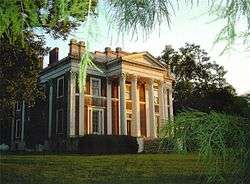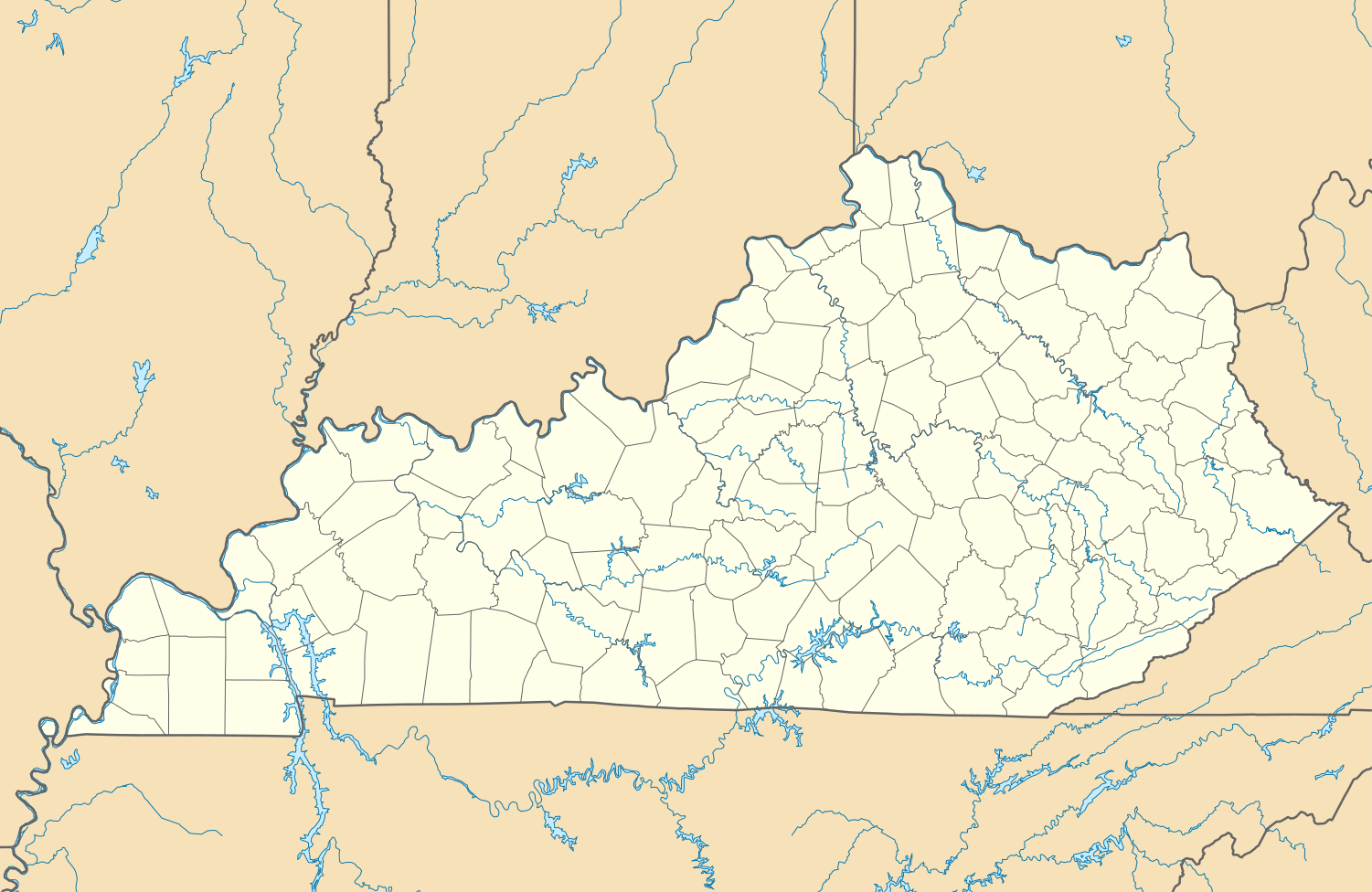Ward Hall (Georgetown, Kentucky)
|
Ward Hall (Boundary Increase) | |
 | |
  | |
| Nearest city | Georgetown, Kentucky |
|---|---|
| Coordinates | 38°12′23″N 84°35′18″W / 38.20639°N 84.58833°WCoordinates: 38°12′23″N 84°35′18″W / 38.20639°N 84.58833°W |
| Built | 1853 |
| Architect | Lewinski,Thomas |
| Architectural style | Antebellum Greek Revival |
| NRHP Reference # | [1] |
| Added to NRHP | August 23, 1985 |
Ward Hall is a Greek Revival antebellum plantation mansion located in Georgetown, Kentucky. The main house covers 12,000-square-foot (1,100 m2), with 27-foot (8.2 m) high Corinthian fluted columns.
History
The mansion was built by Junius Richard Ward (1802–1883) and his wife Matilda Viley Ward circa 1857 in Scott County, Kentucky.[2] The mansion was built as a summer residence; their plantation house located near Leota Landing, Washington County, Mississippi served as their winter residence.
Junius Ward was the grandson of the Col Robert and Jemima Suggett Johnson family of Scott County, Kentucky, an extraordinarily powerful political and economic family dynasty whose members extended their influence throughout the Mississippi Delta and who also had plantations along the Mississippi River near Greenville, Mississippi and Lakeport Plantation near Lake Village, Arkansas. Many of these family members had plantation houses in the deep South and summer residences in Scott County, Kentucky. Matilda Viley was the sister of pioneer thoroughbred breeder, Capt. Willa Viley of Scott County, first president of the Lexington Racing Association.
Junius Ward was forced to sell the plantation in 1867, due to financial reverses following the Civil War. The home was offered by a later owner to the Commonwealth of Kentucky, if they would use it as the state capitol. The offer was not accepted.
Design
The mansion is attributed to Major Thomas Lewinski and is the embodiment of numerous Minard Lafever design elements from his 1829 and 1835 pattern books. It was built by Taylor Buffington, measures 62 ft wide (19 m) and 69 ft long (21 m), four stories, with a 14-foot-wide (4.3 m), 65-foot-long (20 m) central corridor on three floors. There are three rooms on each side of the central corridor, with the exception of the area set aside for the nautilus-chambered double elliptical staircase which rises three floors.
The floor plan is based on #17/18 of the 20 permutations within the Palladian grammar by 16th century architect, Andrea Palladio. At each end of the central corridor on the main floor are front and rear entrances with cut-glass transom and side lights. The servants working rooms and sleeping rooms in the basement represent one of the most intact antebellum basements in the country. Forty acres of the original plantation remain with the house.
Preservation
Ward Hall is now the home of the The Ward Hall Preservation Foundation, Inc. The foundation raised one million dollars to purchase the estate 40 acres (160,000 m2), and is dedicated to raising the funds necessary to restore the estate in order to operate the facility as the Ward Hall Plantation of 1857, a cultural and educational facility dedicated to teaching the culture of Kentucky. The historic site depicts an interpretative period from 1857–1867
Ward Hall is a Kentucky Landmark and on the National Register of Historic Places.
References
- ↑ National Park Service (2009-03-13). "National Register Information System". National Register of Historic Places. National Park Service.
- ↑ Downing, George C. (September 1906). "Old Kentucky Homes and Their Histories: The Ward Home near Georgetown". Register of Kentucky State Historical Society. Kentucky Historical Society. 4 (12): 54–58. JSTOR 23366291.
External links
- Official Ward Hall website
- Lakeport Plantation website - Johnson family plantation in Arkansas